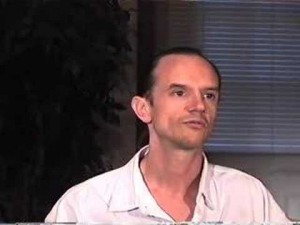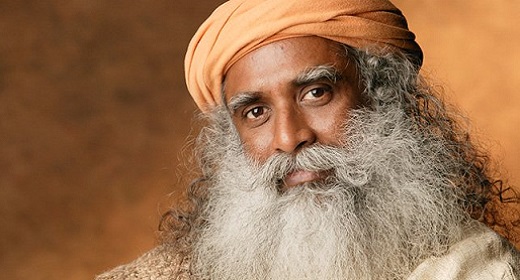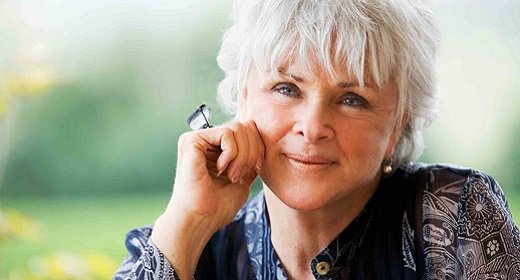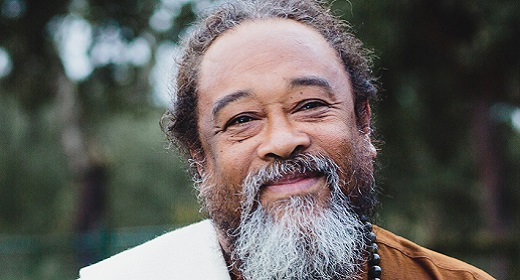A collective shift in consciousness is taking place in people from every culture, faith, and walk of life, asserts Arjuna Ardagh. Is this for real?  We asked the author of The Translucent Revolution and Let Yourself Go about the implications of this shift for our daily lives.
We asked the author of The Translucent Revolution and Let Yourself Go about the implications of this shift for our daily lives.
Sounds True: Is something really evolving in human consciousness?
Arjuna Ardagh: Let me address that question like this: I wonder if you’ve ever been to a big movie complex—one of those movie theatres where they have many screens in the same building. You buy a ticket for a beautiful, sweet film, and by mistake you walk into the wrong movie theatre. You think you’re going to see one film and you end up finding yourself in the middle of The Terminator or something, and at a certain point you realize “Hey! This is not what I signed up for! I thought I was getting one thing and I’m getting a different thing.”
This kind of feeling, of a schism between what you’re getting and what you thought you were getting is something that many people have testified to in the last years. I think it was a feeling that was very strong in the 1960’s and early 70’s and really gave birth to a whole new wave of spiritual seeking. But it’s really this kind of feeling—a schism between the way that we see life being lived—both personally and collectively—and a deep intuition and longing in the heart. A sort of intuitive wisdom of how life could be lived; the potential of human beings.
Now this is something that I’ve looked into a great deal. It was the topic of my 2005 bookThe Translucent Revolution. There appear to be more and more people who are feeling this intuition quickening in themselves. So they’re feeling a more sharp, a more urgent, and a more vivid recognition that they’re living in a world that has gone slightly mad. There are many ways that we can point to the manifestation of that. One obvious example would be global warming—the fact that we’re heating the planet up, potentially making ourselves extinct, and we’re not really doing much about it. It’s rather like Nero fiddling while Rome burns! You know, we’re just carrying on with seemingly superficial preoccupations while the very stability of the planet is in danger.
I think that most people these days, if you say, “We’re living in a world gone slightly mad,” won’t need much explanation to understand what we’re talking about. Now, in one way, both personally and collectively, all of the symptoms of “life gone slightly mad” seem to be disconnected. Take having arguments at home—that’s a little bit mad. If you have a spouse and you have children and you’re living together, of course to be living in continuous conflict as many do would be thought a strange thing. Yet we seem to have come to accept it as inevitable.
Sounds True: People describe it as a “normal dysfunction.”
Arjuna Ardagh: Exactly. An acceptable dysfunction. All kinds of things on a personal level—alcoholism, drug abuse, child abuse, domestic violence—all of these things we accept as just part of life but actually from a kind of ontological perspective, it’s very strange, the way that we live. So all the way from personal imbalance to collective imbalance—all of these things seem to be disconnected. What does overwork, sugar addiction, and having arguments at home have to do with global warming, international conflict and economic disparity?
But more and more people today are recognizing that while all of these things—these infinite numbers of symptoms—while all of these things on the surface appear to be separate and disconnected, at a deeper level, they are actually all symptoms of the same state of consciousness that many people today recognize is no longer viable. That state of consciousness is dominated by the feeling of separation. A feeling that who I am and what I am is separate from, disconnected from, life itself. And therefore the relationship between the “me” and the “other” is strategic. It’s one of desire, it’s one of manipulation: how can I do what I need to do to get what I want? This is the relationship that we have in our personal relationships—to our economic system, as a person to society, but ultimately, it’s the relationship that we have as a race to the planet. How can I get as much as possible out of this planet and never mind the consequences?
So that state of consciousness is really one that we’ve come to collectively accept as normal, even though many people intuitively recognize that it’s not natural. There’s a distinction to make between what is normal and what is natural.
Sounds True: Is this realization really that much more common today, than, for instance, thirty or forty years ago?
Arjuna Ardagh: I believe that in the last 15 to 20 years, a growing number of people have been waking up from the gestalt of separation, from that feeling of “me and the other.” Traditionally this has only happened to a select few; the Buddha or Jesus, for example. What is new and revolutionary these days is that it’s happening to so many people. Conservative estimates would say that millions of people now have had this kind of awakening through direct experience—a direct recognition that this separate entity called “self” does not really exist. What is really here, experiencing this moment, is a consciousness, awareness, or presence that is not cut off from “presence-ness” anywhere else.
Sounds True: On Let Yourself Go, you speak about a shift in how people in our world today are living this recognition.
Arjuna Ardagh: Yes, what’s also new is that it’s happening in a very different kind of embodiment—in a way that does not involve renunciation or turning one’s back on the world. It’s happening in a way that includes all of the aspects of day-to-day life. The awakening can happen in a moment and be quite profound and shattering—or not—but the embodiment of that awakening is something that goes on and on. It’s an endless process.Let Yourself Go is about catalyzing that process. The first CD introduces you to the realization that you are not a separate entity; the rest of the program is about how we can question layer upon layer of our innate assumptions about reality. The more we do this, the more space we create for presence to take over life. So, really what’s happening is, as the realization becomes stronger, as the presence becomes stronger, there is innate intelligence, there is innate inquiry within presence itself and that innate intelligence is what questions the encrusted habits which keep the sense of a separate entity in place.
Sounds True: You mention that we live with layers of assumption. These are the points of view we learn to question on Let Yourself Go?
Arjuna Ardagh: Yes. The most fundamental point of view we need to question is our sense of a separate self. Let Yourself Go guides you in the discovery of the core points of view that are holding this identity together. Think of points of view as a house of cards—when you remove the right card at the bottom of the pile, the whole thing will come down.
Sounds True: Can you give us an example?
Arjuna Ardagh: Take the point of view of lack—that there’s not enough—for example. That starts with the belief that you’re separate, and it will generate many more points of view that manifest as financial struggle, for instance, or the idea that “nobody likes me.”
Sounds True: Are points of view more than beliefs up in the head?
Arjuna Ardagh: Yes. A point of view has not only a mental component as belief but it also has a physical component, as emotion. Then there are atmospheres, energetic states that exist deeper than the body, deeper than thinking, and deeper than emotions. Let Yourself Go is about dissolving these different energetic “contractions,” as I like to call them, so that there’s more room for presence to be there. And presence itself, love itself, is not a contraction. Love itself is who you really are.
Sounds True: Can other people help you find these deeper points of view?
Arjuna Ardagh: Yes, absolutely. To have an awakening, what helps is a cave and a meditation cushion. To have embodiment what you need is participation in life. The practices on Let Yourself Go are not something removed from life—some kind of indulgence or something esoteric. We could speak about it as “realization” or “enlightenment” or give it these labels, but another way is to say that to be able to experience reality without the interference of illusion, without the interference of imagining things that are not there, is just sanity—a means of restoring ourselves to health, to our natural state.
I see it as basic “spiritual hygiene,” the basics for living in a sane, healthy way so that one’s relationships can reflect the love that we intend for them to have, so that our work can reflect the sense of contribution which we intend for it, so that our every word and deed is something that when we die we can feel were offered with integrity, and that we lived a life worth living, not a hallucination.
Sounds True: What do you say to someone who feels afraid to “let go”?
Arjuna Ardagh: This question points to the nature of the collective shift that’s happening. More and more people are realizing that that which they’re afraid of letting go of never really existed in the first place. It’s a funny paradox because yes, people do have this fear in the mind, the fear of disappearing. It creates anxiety because people say “Oh my god, I’m not going to exist anymore,” but it’s not really like that at all because in the realization, that which you actually are becomes stronger, becomes more vibrant, more bubbly. All that disappears is that which was never there in the first place, which is a sense of a separate person.
Since the word “me” is so nebulous it’d be better to say that upon sober examination there is an awakening and in this awakening, in the light of this awakening, anxiety dissolves—separation dissolves, that which interferes with love dissolves, selfishness dissolves, and what replaces it is a feeling of oneness, intimacy, a feeling of connection. So there’s more and more love and although of course there is still the appearance of a “me” and a “you,” now that appearance can be fully enjoyed. In the light of this awakening, nothing is lost, and in fact the possibility of intimacy of relationship, of connection, of feeling love, all of these things become stronger. It’s only the unnecessary anxiety and suffering of a hallucinatory sense of separation that dissolves, so really the only thing that really melts away is the fear itself.
Sounds True: So if we’re returning to our natural state once we have this realization, why does it feel so natural to be in “sleep mode,” if you will? Why do we enable ourselves to continue to live in this way? Are we just ignoring that longing that you mentioned earlier?
Arjuna Ardagh: That’s actually a beautiful question to sit with because it’s a question that ultimately has no answer. That’s what everyone asks themselves in the light of the awakening. It’s like, “My god, how could this have been overlooked? It’s so simple, it’s so immediate, it’s so obvious. How could it have been possible to overlook this, which is all that there is?” And there’s really no answer to this; it’s actually something of a mystery, how illusion works.
But what we can see are a few things. First of all, the illusion itself, the collective illusion of separation is simply no longer viable, so the illusion is destroying itself. We have taken separation to its maximum possible extent, whereby for the first time that I know of anyway, human beings are threatening their own survival. And so it’s not possible to continue to live as we’ve been living for very much longer.
Forget about the awakening. It’s not a possibility for human beings to continue to try to live on this planet in the way they have been living. Sooner or later to continue to ramp up this feeling of separation between races, between different groups, must lead to greater and greater collective violence and at a certain point it leads to some sort of mass destruction. So that’s one thing: just the way that we treat the planet. If you forget all about the awakening, you can see that this way of living, this mode of living from the illusion of separation, has outlived itself and just can’t continue.
It’s analogous to a nightmare: the worse the nightmare gets the stronger the chances are of waking up. If you’re having a very cozy dream, there’s not much incentive to awaken. If your nightmare gets more and more extreme, you wake up. So in the same way, many people recognize that the worse things get, on the physical plane, the more incentive there is to awaken. I would say that’s what’s happening, that as the physical survival of the planet becomes seriously jeopardized, the incentive increases for those with enough sensitivity, intelligence,
Sounds True: Which brings us to the act of embodiment. After waking up, the challenge then is to embody it as a spiritual warrior of sorts, acting out of love for the world instead of running away from it, as did many spiritual seekers in the past.
Arjuna Ardagh: Yes, and there’s a kind of nuance to this because in one way, in the awakening, the awakening itself does that. The process of embodiment is not exactly, “I am deciding to become, to embody this.” It’s more like the presence itself brings the embodiment, and there are more and more tools available to lubricate that, to nudge that forward. This is really what the audio course Let Yourself Go offers: a way that the process of embodiment that is already occurring can be helped. It provides a structured way for the embodiment of awakening to happen.








































